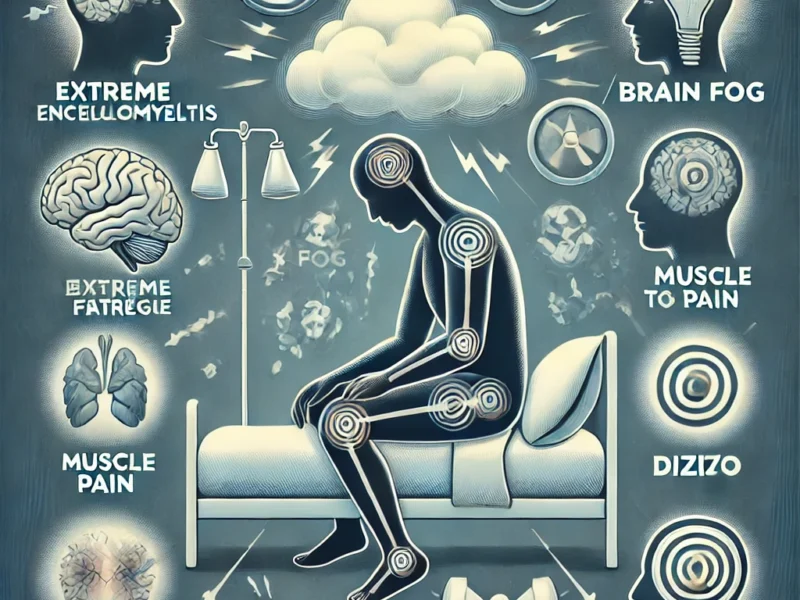
Schizophrenia: Understanding the Disorder
Introduction to Schizophrenia
Schizophrenia is a chronic, severe mental disorder that affects how a person thinks, feels, and behaves. It is characterized by episodes of psychosis, which include hallucinations, delusions, and disorganized thinking. Schizophrenia impacts approximately 0.3% to 0.7% of the global population, with symptoms typically manifesting in late adolescence or early adulthood.
Symptoms of Schizophrenia
Positive Symptoms:
- Hallucinations: Perceiving things that are not present, commonly auditory hallucinations (hearing voices).
- Delusions: Strongly held false beliefs that are not based in reality.
- Disorganized Thinking: Trouble organizing thoughts and connecting them logically, often resulting in disorganized speech.
- Movement Disorders: Agitated body movements or catatonia (lack of movement).
Negative Symptoms:
- Blunted Affect: Reduced expression of emotions through facial expressions, voice tone, and body language.
- Alogia: Reduced speech output.
- Anhedonia: Inability to experience pleasure.
- Asociality: Lack of interest in social interactions.
Cognitive Symptoms:
- Impaired Executive Function: Difficulty understanding information and using it to make decisions.
- Attention Deficits: Trouble focusing or paying attention.
- Memory Problems: Issues with working memory and recalling information.
Causes and Risk Factors
Genetic Factors: Schizophrenia tends to run in families, suggesting a hereditary component. However, no single gene is responsible for the disorder; rather, multiple genetic changes increase susceptibility.
Environmental Factors: Prenatal exposure to infections, malnutrition, or stress can increase the risk. Additionally, childhood trauma and substance abuse, particularly marijuana, have been linked to higher incidence rates.
Brain Structure and Function: Differences in brain structure, such as reduced gray matter volume and altered connectivity, have been observed in individuals with schizophrenia.
Diagnosis of Schizophrenia
Diagnosing schizophrenia involves a comprehensive psychiatric evaluation. Key criteria include the presence of at least two of the following symptoms for a significant portion of time during a one-month period, with signs of disturbance persisting for at least six months: delusions, hallucinations, disorganized speech, grossly disorganized or catatonic behavior, and negative symptoms.
There are no definitive laboratory tests, but imaging tests (CT, MRI), and other evaluations (EEG, blood tests) can help rule out other conditions.
Treatment of Schizophrenia
Medication: Antipsychotic medications are the cornerstone of schizophrenia treatment. They help manage symptoms by affecting neurotransmitter pathways in the brain. Common medications include risperidone, olanzapine, and aripiprazole. Side effects can range from weight gain and diabetes to movement disorders.
Psychotherapy: Cognitive Behavioral Therapy (CBT) helps patients manage symptoms and improve daily functioning. Psychotherapy also addresses secondary issues like anxiety and substance abuse.
Self-Management and Support: Lifestyle modifications, such as maintaining a healthy diet, regular exercise, stress management, and avoiding drugs and alcohol, are crucial. Support groups and educational programs can also aid in managing the condition.
Schizophrenia and Co-Occurring Conditions
Many individuals with schizophrenia also suffer from other mental health issues, such as depression, anxiety disorders, or substance use disorders. Treatment plans often need to address these co-occurring conditions to improve overall outcomes.
Living with Schizophrenia
Managing schizophrenia requires a long-term commitment to treatment and lifestyle adjustments. Building a strong support network, staying informed about the condition, and actively participating in treatment plans are essential for improving quality of life.
Future Directions in Schizophrenia Research
Genomics and Precision Medicine:
Continued exploration of the genetic underpinnings of schizophrenia could lead to more targeted treatments based on individual genetic profiles. This includes identifying specific gene variants associated with the disorder and understanding their impact on disease expression.
Neuroimaging and Biomarkers:
Advances in neuroimaging techniques may uncover biomarkers that could aid in early diagnosis, prognosis, and monitoring of schizophrenia. This could include structural and functional MRI, PET scans, and other imaging modalities to better understand brain abnormalities associated with the disorder.
Neurobiology and Circuitry:
Deeper investigation into the neural circuits implicated in schizophrenia could provide insights into how disruptions in brain connectivity contribute to symptoms. This may involve studying specific brain regions, neurotransmitter systems, and their interactions.
Environmental Factors:
Research focusing on environmental factors such as prenatal exposure to infections, stress, trauma, and urban upbringing could elucidate their role in triggering schizophrenia and influencing disease progression.
Immune System and Inflammation:
Emerging evidence suggests that immune dysregulation and inflammation may play a role in schizophrenia. Future studies might explore immune system markers, autoimmune mechanisms, and potential immunomodulatory treatments.
Lifestyle and Psychosocial Interventions:
Investigating the impact of lifestyle factors (e.g., diet, exercise) and psychosocial interventions (e.g., cognitive behavioral therapy, social skills training) on symptom management and overall outcomes could lead to holistic treatment approaches.
Digital Health and Technology:
The use of digital health tools, such as mobile apps for monitoring symptoms, virtual reality for cognitive training, and wearable devices for continuous monitoring, could revolutionize the management of schizophrenia and improve patient outcomes.
Drug Development and Novel Therapeutics:
Continued efforts to develop new medications with improved efficacy and fewer side effects, as well as exploring novel therapeutic targets based on the latest scientific insights, are crucial for advancing treatment options.
Longitudinal Studies and Big Data:
Long-term observational studies and utilization of big data analytics could provide comprehensive insights into the natural history of schizophrenia, treatment effectiveness over time, and personalized medical approaches.
Global Perspectives and Healthcare Disparities:
Considering the global burden of schizophrenia and disparities in access to care, research efforts could focus on adapting interventions to diverse cultural contexts and improving mental health services worldwide.
External Links
- National Institute of Mental Health (NIMH) – Understanding Schizophrenia
- Johns Hopkins Medicine – Living with Schizophrenia
- Mayo Clinic – Schizophrenia Treatment and Diagnosis
Internal Resources:
- Hundreds of thousands of novel gene transcripts are discovered through sequencing the developing human brain.
- New Research Shows ‘Profound’ Link Between Dietary Choices and Brain Health
- Unlock Your Focus: Herberall – The Brainpower Booster
- Brain Hack or Brain Snack? Our No-Nonsense Review of Onnit Alpha Brain
- Brain Exercise to Improve Cognition and Mental Health
This article provides a comprehensive overview of schizophrenia, including its symptoms, causes, diagnosis, treatment, and management strategies, with additional focus on co-occurring conditions and future research directions.

